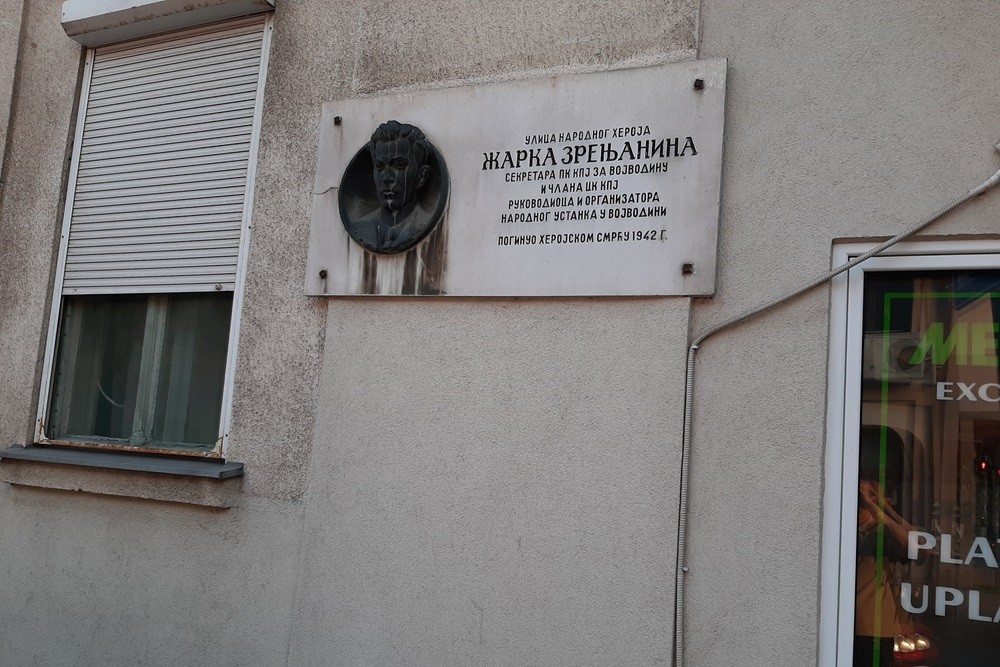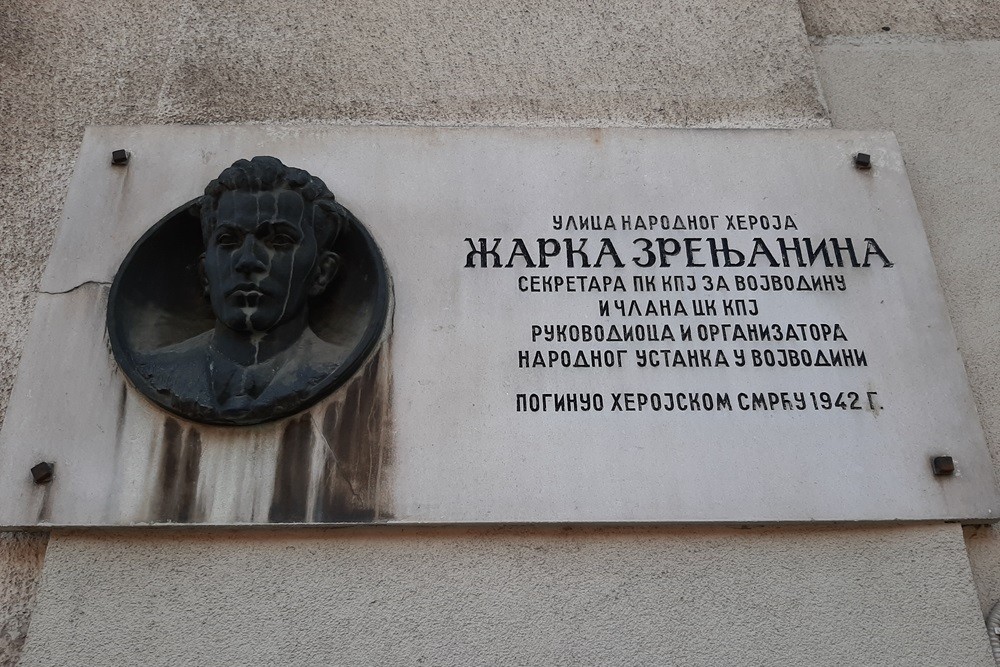Memorial Žarko Zrenjanin
Zarko Zrenjanin was one of Yugoslavia's greatest heroes, a fearless revolutionary who led the uprising in Vojvodina.
Born into a farming family in 1902, he graduated from the Teachers' School. He had already come into conflict with the authorities because of his views. He soon ended up in prison because of socialist ideas.
In his house in Izbist he organized a small illegal festive printing shop, where the first issue of "Leninist" was printed in February 1933. Zrenjanin himself wrote both the introduction and most of the texts.
He was sentenced to three years in prison, but his spirit did not break in detention. Together with Moša Pijada, Ivan Milutinović and other prominent communists, Zrenjanin fought for the rights of political convicts, participated in hunger strikes and other communist actions.
When he came out of prison in 1936, he did not hesitate but continued his political work. He became a prominent figure of the Communist Party because his perseverance was admired by everyone. By the time of the war in 1941, he had been arrested and tortured five times in police prisons in St. Petersburg, Belgrade's main landlord and Ada Ciganlija.
He was a member of the initiative committee of the Workers' Party of Vojvodina, one of the authors of the "Platform", which pointed out that Vojvodina, in the future organization of Yugoslavia, "will be an autonomous unit, given its special, economic, social and national structure".
His progressive ideas again caused him great trouble, and he was soon arrested and tortured again in St. Petersburg prison, from which he did not leave until October 3, 1940.
The company stayed with him. Although in prison, in early September 1940 at the Sixth Provincial Conference of the Communist Party for Vojvodina he was elected secretary of the PK and delegate to the Fifth Regional Conference of the Communist Party, where he was elected a member of the Central Committee of the Communist Party.
And then a dark shadow of Nazism loomed over Europe - Hitler took over the world. Zrenjanin first took part in demonstrations in Pancevo and Vrsac, and then organized preparations for the liberation struggle in Vojvodina.
However, the battle was brutal and claimed lives. But the spirit of resentment, rebellion and ideas that fueled Zrenjanin did not die away. After the heavy blows that the KPJ organizations in Banat and Bačka suffered in the summer and autumn of 1941, he worked on the renewal and consolidation of the party, developing the tactics of the struggle in accordance with the conditions there.
When Hitler finally began to lose the war, Zrenjanin took the Moscow counteroffensive as a sign for the KPJ to be prepared for the events that might result from the defeat of the Nazis. On February 1, 1942, the PK KPJ for Vojvodina warned the Bačka and Baranja organizations that they were preparing to take power, which was a unique case in Yugoslavia at that time.
The Germans wanted him dead. They knew that the fall of such a man would break the spirit of the people. The Gestapo made great efforts and organized numerous troops to capture the "red general", as Zrenjanin was called.
However, the zrenjanin was difficult to catch. He achieved brilliant successes and in November 1942 Tito invited him to the Free Territory of Western Bosnia and attend the first session of the AVNOJ.
But then something he didn't expect happened. It never occurred to him that someone else might betray him. But that's exactly what happened. In the midst of preparations to go to Srem, and further to western Bosnia, Zrenjanin was denounced by the Gestapo and murdered on November 4, 1942 in the village of Pavliš, near Vršac.
Do you have more information about this location? Inform us!
Source
- Text: TracesOfWar
- Photos: Koos Winkelman
Nearby
Museum
- House of Flowers Museum - Beograd
- Yugoslav monitor "Sava" - Belgrado
- Military Museum Belgrade - Beograd
Point of interest
- Bombing of Serbia's National Television by NATO in 1999 - Belgrado
- Ministry of Defence Belgrade - Beograd
- Topovske Šupe Concentration Camp - Belgrado
Monument
- Memorial Sava Kovačević - Beograd
- Monument for Writer Jovan Popovic - Belgrado
- Monument Serbian Jewish Servicemen 1912-19 - Beograd






